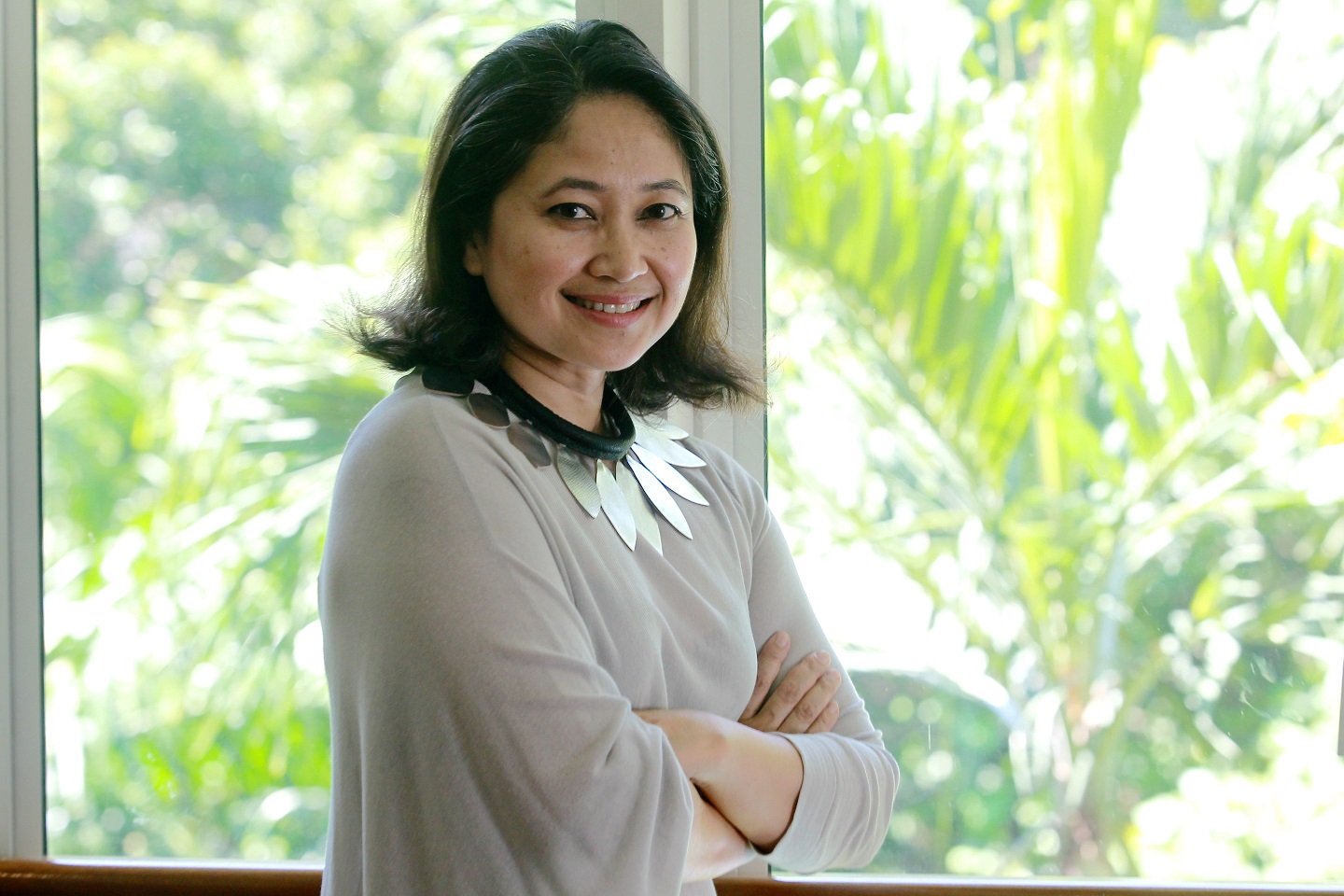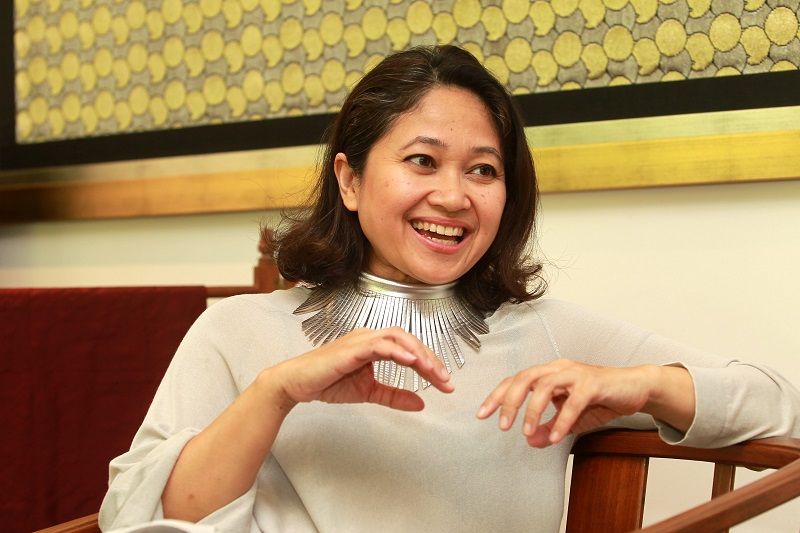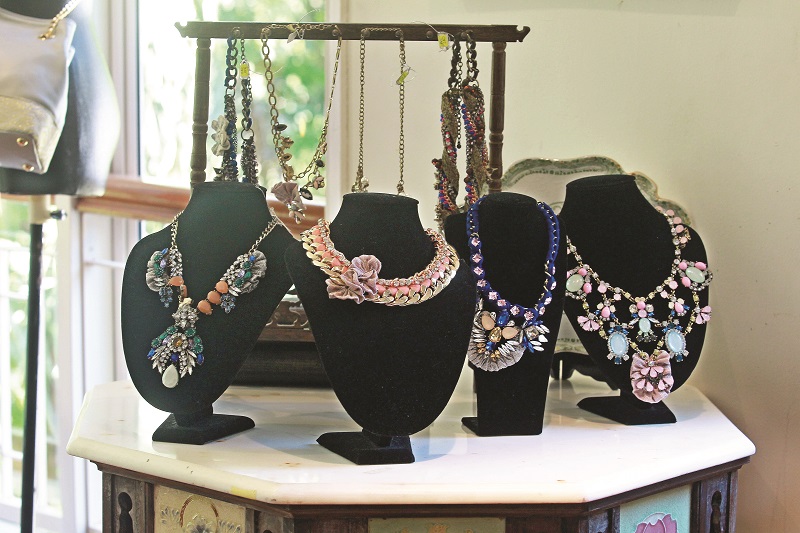
For the past 3½ years, Senijari founder and creative director Suryani Senja Alias has been working tirelessly on developing her heritage-inspired brand and the fruits of her labour can be seen in luxurious hand-woven shawls as well as accessories, handbags and clutches interlaced with songket motifs.
The design process varies from product to product, she says. For example, the songket for the bags is bought in Kelantan while the leather is from a family-run workshop in Rome. “I work out the design with an Italian designer and she comes up with the sketches, which I then approve or change. I also send her the songket that I wish to include in the products and she matches it with Italian leather,” says the Kelantanese, who is excited about working with artisans from her home state.

The jewellery, however, is the outcome of the meeting of three minds — Suryani, her aunt, who makes the songket patterns by hand, as well as a young local jewellery designer, who works on the commissioned designs. The shawls are produced by Sarawak-based social enterprise Tanoti exclusively for Senijari with design input from Suryani.
In addition to the tangible results in the form of beautiful Senijari products, Suryani also has big plans for Malaysian arts and crafts. “My dream is to create a concept space or a cultural gallery, where people can learn about Malaysian culture. It will be a well-curated space with enough information about local craft and textile. We don’t have any (at the moment) and I think it will do KL good to have a hub like that,” says the former lawyer, referencing the Jim Thompson House in Bangkok and Hong Kong luxury fashion house Shanghai Tang as an example.
Having read law at the International Islamic University Malaysia and pursued her master’s at the London School of Economics, Suryani enjoyed an illustrious career in the legal arena. She practised corporate law in London for two years before going on to became an equity analyst in a French investment bank, also in London, for another two. She then pursued international law with the United Nations in Geneva for five years.

“Even when I was a banker/lawyer, I was always more into art history, design and literature. If I had my way I would have done art and literature but I ended up going to law school and after a while I got so bored!” she said with a laugh. Despite her busy schedule, Suryani found the time to pursue her passion for the arts by taking up a contemporary art course at Christie’s Education (owned by Christie’s Auction House) during her time spent abroad.
Upon returning to Malaysia, Suryani spent five years in Khazanah Nasional and in 2011 she set up Cult Sdn Bhd. “My vision for Cult was for it to generate high-quality local brands including an art gallery, a lifestyle brand as well as a publishing arm,” she explains. The first two have been achieved with Cult Gallery and Senijari. Suryani hopes to work on publications involving art and culture in the near future.
When it comes to collaborations, Senijari makes an effort to work with brands that have the interest of its employees at heart. One such brand is Tanoti, and Suryani got acquainted with its founders during her time with Yayasan Tuanku Nur Zahirah, where she served as chairperson for two out of five years there. “I like working with Tanoti because their weavers are treated well and paid proper salaries as well as other benefits,” she says before relating the story of one of the weavers she remembers. “She was a single mother and (initially) did not earn enough to even send her kids to school but she later rose to the position of senior weaver, earning over RM2,000 a month. After about five years, she was able to buy a car and send her kids to school,” she says smiling.

Having worked closely with artisans, Suryani’s passion for local art and craft is tightly interwoven with issues pertaining to social mobility. “Not everyone wants to come to KL to look for work, far away from their families. The city can be unsafe for young girls. That is why it is so important to push this agenda of being able to transform our craft into the relevant design language of the future so that artisans all over Malaysia can make a career out of their talent,” she explains.
“Our artisans earn so little even though they are doing something of very high value, in terms of craftsmanship. They are not able to sell their work (for a more reasonable price) because people do not place a lot of value on our craft. There was a socioeconomic reason for setting up Senijari as well. I wanted to create a more high-value market for our arts that would also trickle down to our artisans so that they can be proud of their craft as are artisans in other countries such as Thailand and Indonesia,” she explains further.
Besides an emphasis on quality, Suryani opines that another way to penetrate the global market is through participation in international trade shows such as the Maison et Objet in Paris and the London Design Fair, which she admits can be an expensive affair for brand owners.
“I think Malaysia has not fully optimised its potential in culture, craft and heritage…I think we still have quite a bit of work to do, to expose our culture and transpose it into our design. I think it is slowly happening because of the internet and social media,” she says, lamenting the lack of high-quality Malaysian products that display our rich heritage and talent.
This article first appeared on Feb 5, 2018 of The Edge Malaysia.


